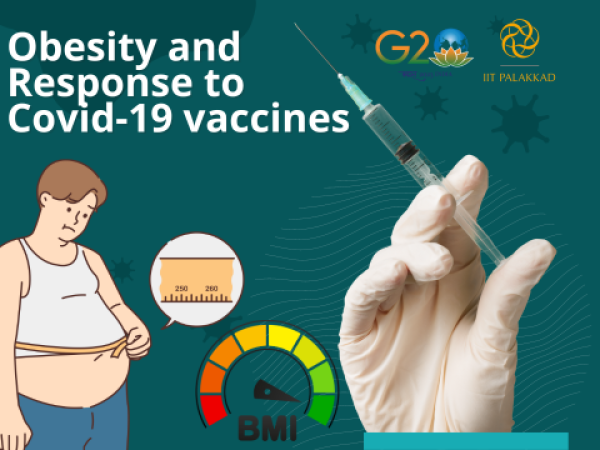
Editorial Article by Prof. Jagadeesh Bayry says Obesity negatively impacts maintenance of antibody response to COVID-19 vaccines
In his recently published article at Cell Reports Medicine, Prof. Jagadeesh Bayry (Dept. Biological Sciences and Engineering) says Metabolic disorders like obesity reduce the effectiveness of Covid-19 vaccines. The article briefs: overweight subjects are more susceptible to infections and associated complications than lean individuals. Excess body fat leads to a state of chronic inflammation that weakens the body's natural defense mechanisms against infections. Furthermore, people who are obese experience a weakened humoral and adaptive immune response to vaccines for influenza, hepatitis B, and tetanus. Despite initially showing some protection after flu vaccination, this safeguard diminishes rapidly over time, indicating reduced vaccine effectiveness and maintenance of immune memory.
Prof. Bayry’s team wrote this editorial based on the report that investigated the immune response to COVID-19 vaccines in obese individuals compared to those with a normal body mass index (BMI). The data revealed that obese individuals had impaired neutralizing antibodies, which are crucial for fighting off the virus. This means that even if they were vaccinated, they might still be at higher risk of severe COVID-19 if they got breakthrough infections. The study also looked at the response towards booster doses and found that while obese individuals initially had higher antibody levels after the booster, their antibody levels declined more rapidly over time, potentially leaving them less protected.
The article suggests that obesity negatively affects the duration and quality of immune response to vaccines, not only for COVID-19 but also for other infectious diseases like influenza. It highlights the need to prioritize obese individuals for vaccination campaigns and possibly provide them with more recall doses to maintain sufficient protection. Additionally, lifestyle changes, weight reduction through surgery, and targeting imbalanced metabolism could help improve the body's response to vaccines.






